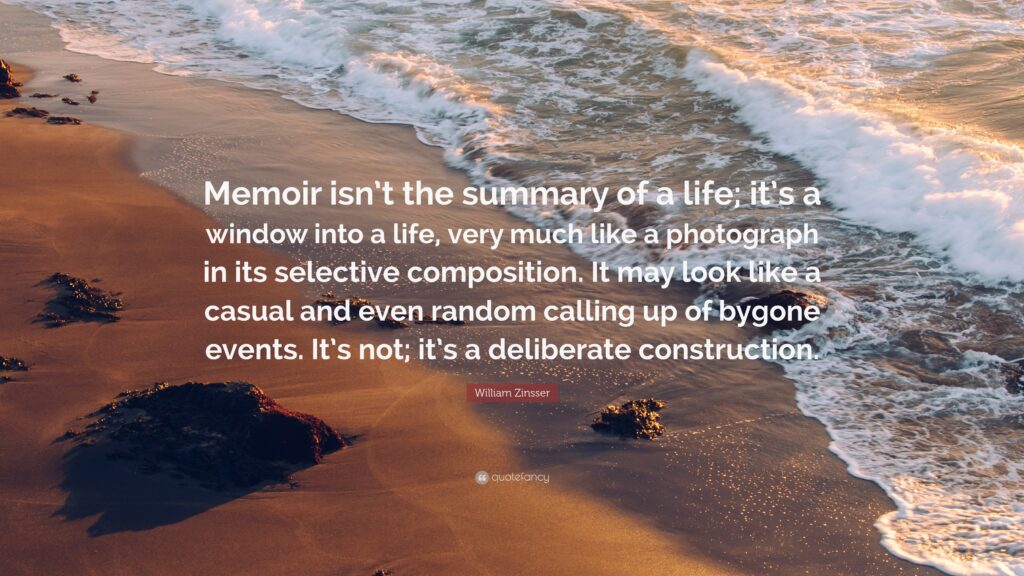
“Memoir isn’t the summary of a life; it’s a window into a life, very much like a photograph in its selective composition. It may look like a casual and even random calling up of bygone events. It’s not; it’s a deliberate construction.” — William Zinsser
Reviving the Bi-weekly Memoir Workshop on Monday, April 28 at 10:30 AM
No matter what age we have achieved, our lives are filled with stories. Whether you write them to share with others or keep them in a private journal, writing memoir is a form of personal therapy, much like solving a jigsaw puzzle. You have a board filled with pieces, scenes in a movie starring you.
At first glance, you might be faced with a mystery. Why did these seemingly random events conspire to shape my life? Or, perhaps you begin with the solution. You already know as you look back, that there was a powerful lesson being delivered with each of the episodes that have taken place.

As Lao Tzu once wrote, “a journey of a thousand miles begins with a single step.”
I encourage you to take that step by joining the Green Mountain Writers Group on Meetup to participate in our Tuesday morning biweekly Memoir Writing Workshop. We typically include work (at any stage of development) shared for review by a few of our participants. We may also provide memoir examples from some notable authors, or stream a short, instructional video for discussion.
No matter which starting point you begin from, there are significant moments, events, and choices that stick with you long after they happened. How do you begin this time travel journey? There’s no need to be formulaic. Most engaging stories consist of a setup, an unexpected conflict, and the final resolution. But they don’t have to.
There are many ways to write memoir. In the beginning, your greatest story is most likely a collection of individual scenes, the highlights of your life. These do not have to be compiled in a novel. Memoir can be a blog post, a short story, or a long form essay.
Narrow your Focus…
Spike Lee says, get yourself a pack of 5 x 7 index cards. Every time you think of a memorable scene, grab a blank card and write it down. Place the card in a box. When you have 72 of them, you have a movie. The cards can be arranged and rearranged in whatever manner to make the best story.
No one says you have to tell the truth in a memoir. In court, witnesses to a crime each have a different narrative and they often are in conflict. We see things and think we remember them, but even the process of memory shifts the story over time. We embellish and modify memories often without realizing it, each time we recall them. Scientists say the brain edits memories relentlessly and they call this reconsolidation.
And then we have writers like David Sedaris who purposefully write memoir as a kind of satiric, magic realism where things are amplified to boost the humor index. There are no rules. Writing is a creative and healing process so let’s get on with it.

Great post Stephen. I love the idea of having a box of 5×7 index cards for each you think of a memorable scene. And yes, writing is a creative and healing process.
Thanks!